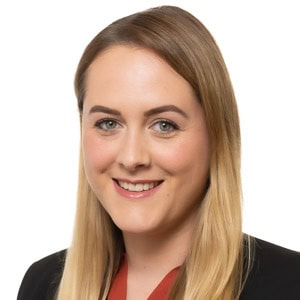Fatal Accident Claims: The Compensation
No amount of money can ever compensate for the death of a loved one following a fatal accident. However, compensation can often be essential in helping bereaved family members cope financially in the absence of the person that has died.
At Bolt Burdon Kemp, we have a team of professional and compassionate lawyers who have helped bereaved clients obtain the compensation that they are entitled to following a variety of fatal accidents. The purpose of this blog is to outline the main types of compensation that can be claimed from those at fault.

www.bbc.co.uk
Following a fatal accident, claims can be brought either on behalf of the person that has died (the ‘deceased’s estate’) or by an individual in their own right. The individual must be in some way reliant upon the person that has died and is known as a ‘dependent’. A limited number of close relatives can also claim for their bereavement.
Claims that can be made on behalf of the deceased’s estate
The deceased’s estate can claim for the compensation that the deceased would have been entitled to had they survived (Law Reform (Miscellaneous Provisions) Act 1934). The types of compensation that can be claimed include:
- compensation for ‘pain, suffering and loss of amenity’ prior to death;
- financial losses incurred by the deceased prior to death; and
- funeral expenses.
Pain, Suffering and Loss of Amenity
Compensation for pain, suffering and loss of amenity can be recovered if it can be shown that there was a period of survival between the accident and death, where the deceased was conscious and was suffering. This type of claim will not be possible where the pain and suffering was brief and regarded as part of the death. It is also not possible to claim for fear and terror suffered prior to death (Hicks v Chief Constable of South Yorkshire).
Compensation for pain, suffering and loss of amenity is valued using guidelines acknowledged by the court. These guidelines set out financial brackets for common types of injuries. The amounts of compensation awarded in previous cases, where the victims have suffered similar injuries, will also be considered when valuing the injuries suffered.
Financial Losses
A claim for financial losses can be made to recover any expenses that the deceased incurred between the date of the accident and the date of death, as a result of the accident. Such financial losses may include past loss of earnings, past care, travel expenses, medical expenses and items damaged in the accident. Invoices, receipts, tickets and other such documentation will help prove that these expenses were incurred and will therefore increase the chance of them being recovered as part of the claim.
Funeral Expenses
Only reasonable funeral expenses will be recoverable. Previous cases have indicated the types of expenses that would be deemed reasonable by the court. The cost of mourning clothes is not recoverable (Gammell v Wilson). The cost of a headstone is recoverable, but a memorial such as a monument or a plaque inside a church is not (Gammell v Wilson). The cost of friends of the deceased travelling abroad to collect the body of the deceased is recoverable (Schneider v Eisovitch).
A claim for the cost of an over-elaborate wake will not be deemed reasonable and therefore will not be recoverable (Quainoo v Brent and Harrow Health Authority). However, a modest claim for the cost of providing some refreshments for guests at a wake would be allowed (Smith v Marchioness/Bowbelle).
Claims that can be made by dependents
Dependents of the deceased can claim for their loss of financial support that would have come from the deceased’s earnings or pension (Fatal Accidents Act 1976). In order to recover this compensation, the person bringing the claim, otherwise known as the claimant, must show that they had a ‘reasonable expectation’ of financial benefit from the deceased. Even if the benefit had not been enjoyed prior to the deceased’s death, this does not necessarily prevent the claimant from recovering the loss. The claimant needs to show that the chance of receiving the benefit was ‘substantial’, rather than just a possibility.
When calculating the claimant’s loss of financial support, the law recognises that the deceased would have spent some money on themselves. The court will assume that the deceased would have spent 33% of their income on themselves if they did not have children, and 25% if they had children, with the rest being spent on their partner and the household.
In addition to the loss of financial support, a claim may be made for the loss of the deceased’s services. This can include things like helping around the house, gardening and DIY. The cost of replacing the deceased’s services as a mother or father can also be pursued. For example, a surviving mother or father may incur the cost of a nanny or boarding school fees to enable them to continue working.
In order to successfully bring a claim for any loss of dependency, the claimant must be one of the following:
- the wife, husband or former spouse of the deceased;
- the civil partner or former civil partner of the deceased;
- anyone who was cohabiting with the deceased, effectively as the husband or wife, and was doing so for a period of at least two years prior to death;
- any parent or other ascendant of the deceased;
- any person who was treated by the deceased as their parent;
- any child or other descendent;
- any person (who is not a child) who, in the case of any marriage to which the deceased was at any time a party, was treated by the deceased as a child; or
- any brother, sister, uncle or aunt.
If the claim is initiated within six months of the death of the deceased, the administrator or the executor of the deceased’s estate must make it on behalf of all the dependents. If no claim is commenced within six months of the date of death, the claim can be made by and in the name of one or all of the dependents. A dependent can be joined into the claim at any time until the court has made their final decision.
In addition to financial dependency, the court has permitted claims for ‘loss of love and affection’, where the services previously provided by the deceased were over and above those that could be provided by any housekeeper or nanny (Regan v Williamson). Claimants are generally awarded between £1,000 and £3,000 for their loss of love and affection and the maximum claim for this loss would be £5,000 (Manning v King’s College Hospital NHS Trust).
Compensation for bereavement
A very limited number of close relatives of the deceased can claim for the bereavement that they have suffered (Fatal Accidents Act 1976). The current level of bereavement compensation in England and Wales is £12,980, for deaths that occurred after 1 April 2013. This can only be claimed by the spouse or civil partner of the deceased, or the parents of a deceased child under the age of 18.
The amount of the bereavement award is considered by the majority of the population to be too low and the number of people who are entitled to the award is also deemed to be too few. By comparison, in Scotland the award is far greater and far more people are eligible, with judges considering both on a case by case basis. The Association of Personal Injury Lawyers (APIL) is currently campaigning for changes to be made to the bereavement award and it is my hope that the current system in England and Wales will soon resemble the Scottish system more closely.
At Bolt Burdon Kemp, we are passionate about the reform of this area of the law. You can read my colleague Yolanda Law’s blog on the need for changes to be made to the law surrounding the bereavement award by clicking here.










